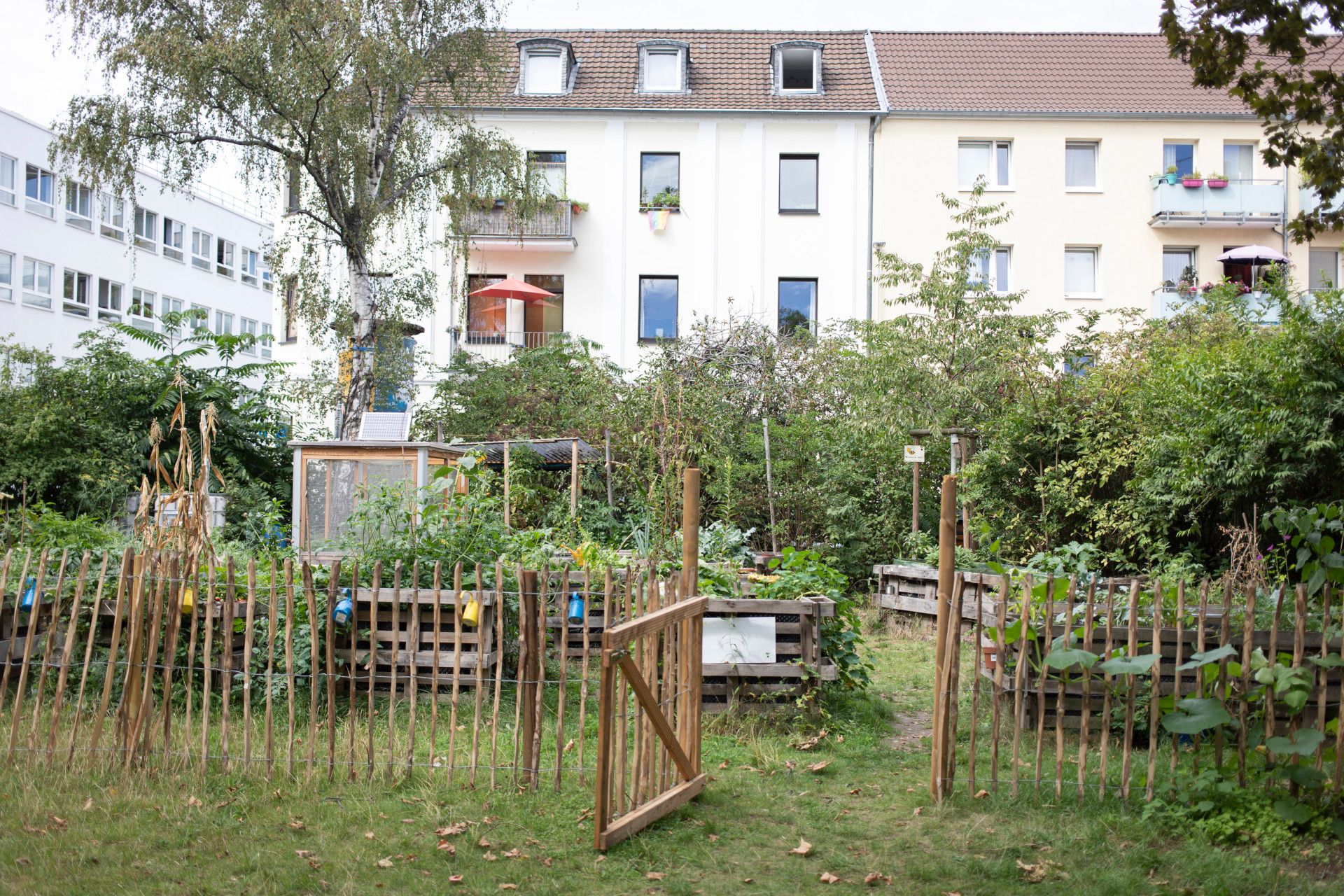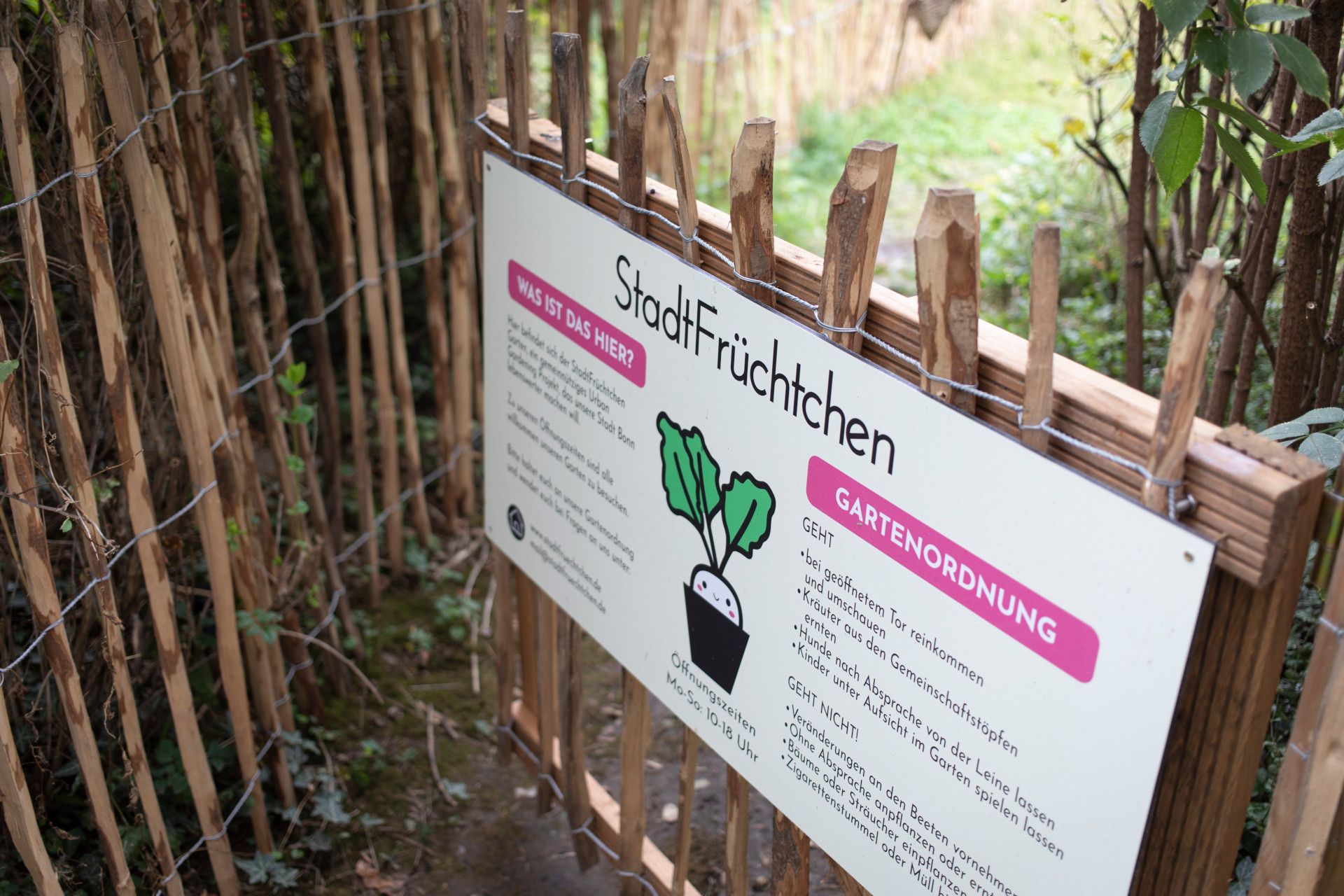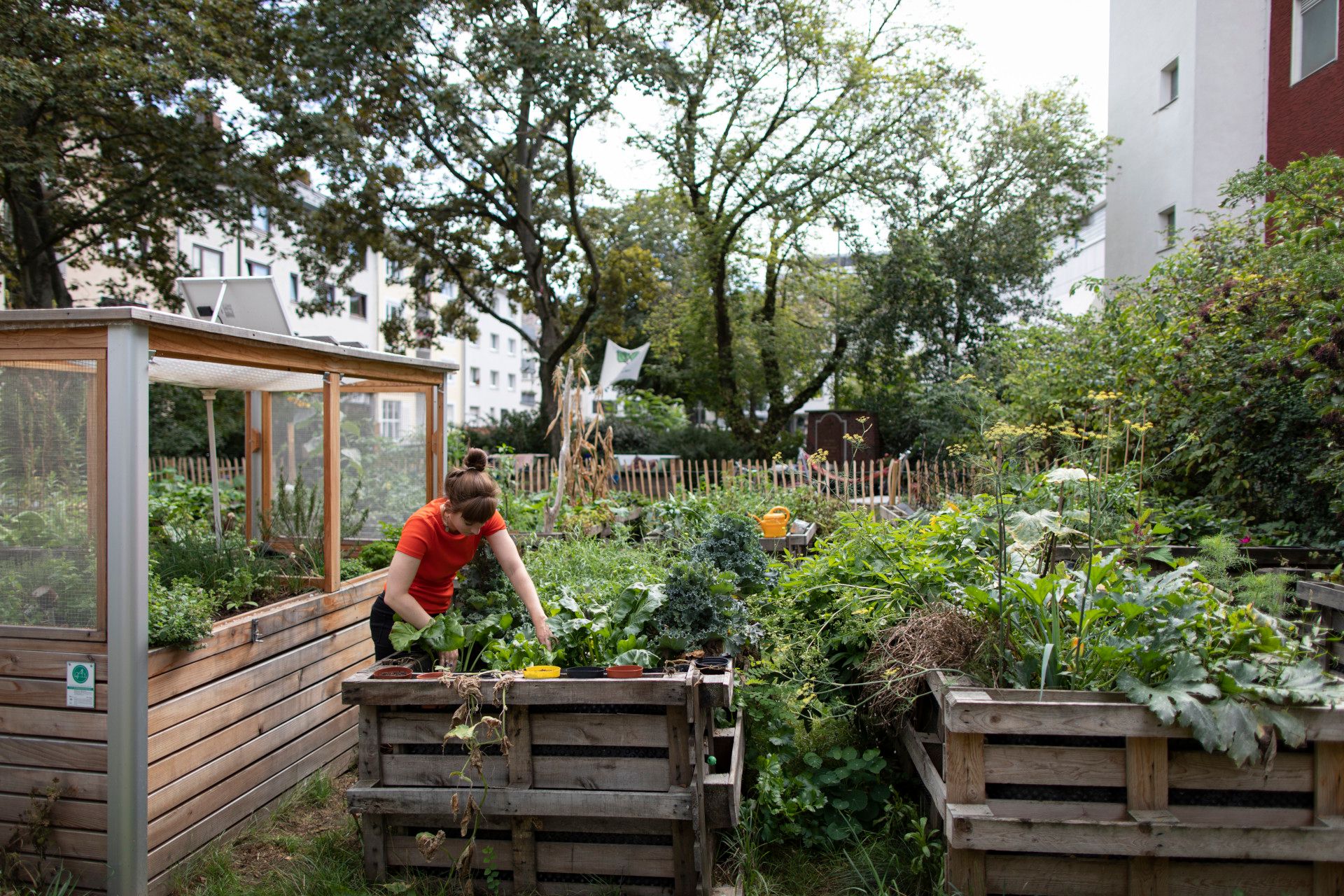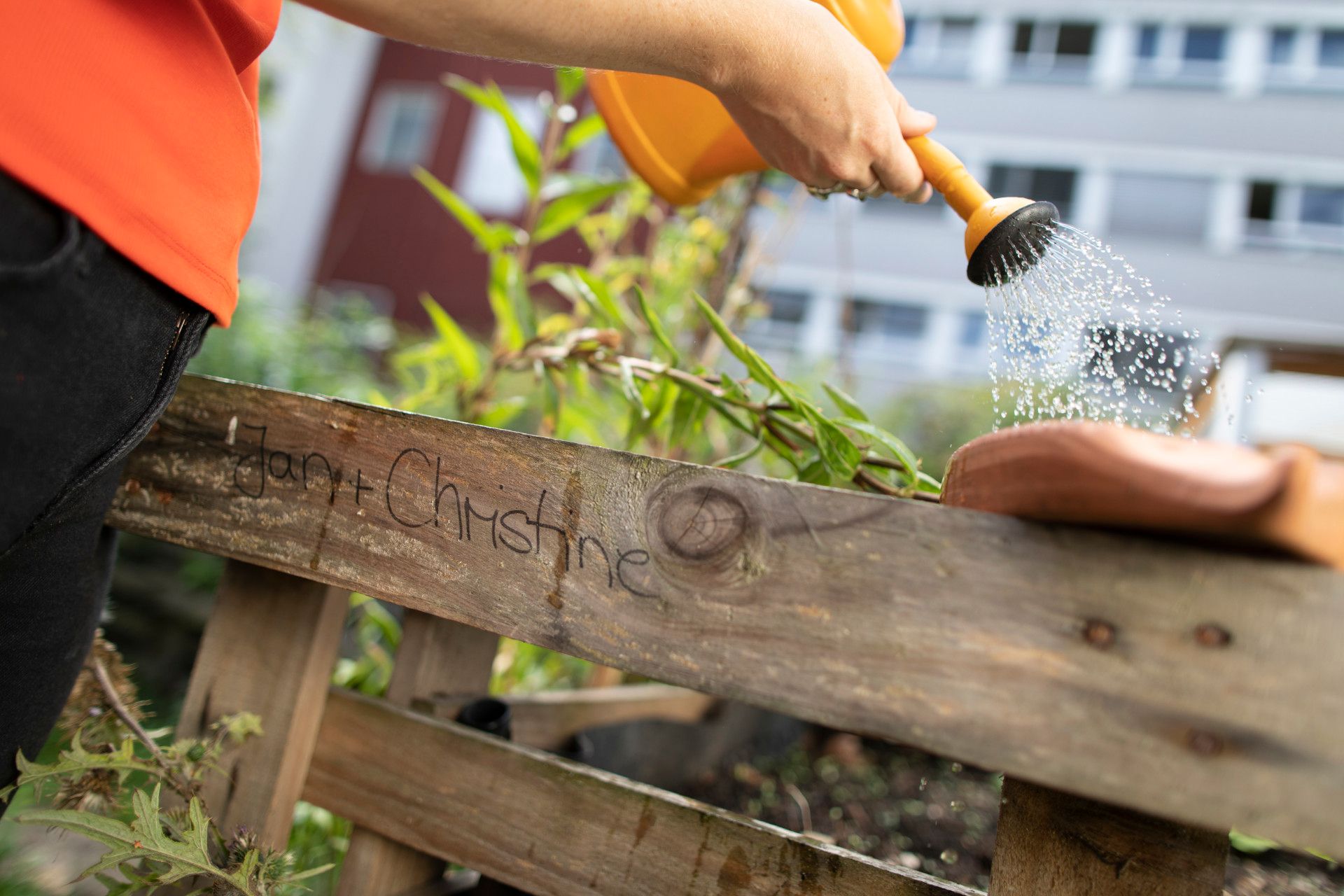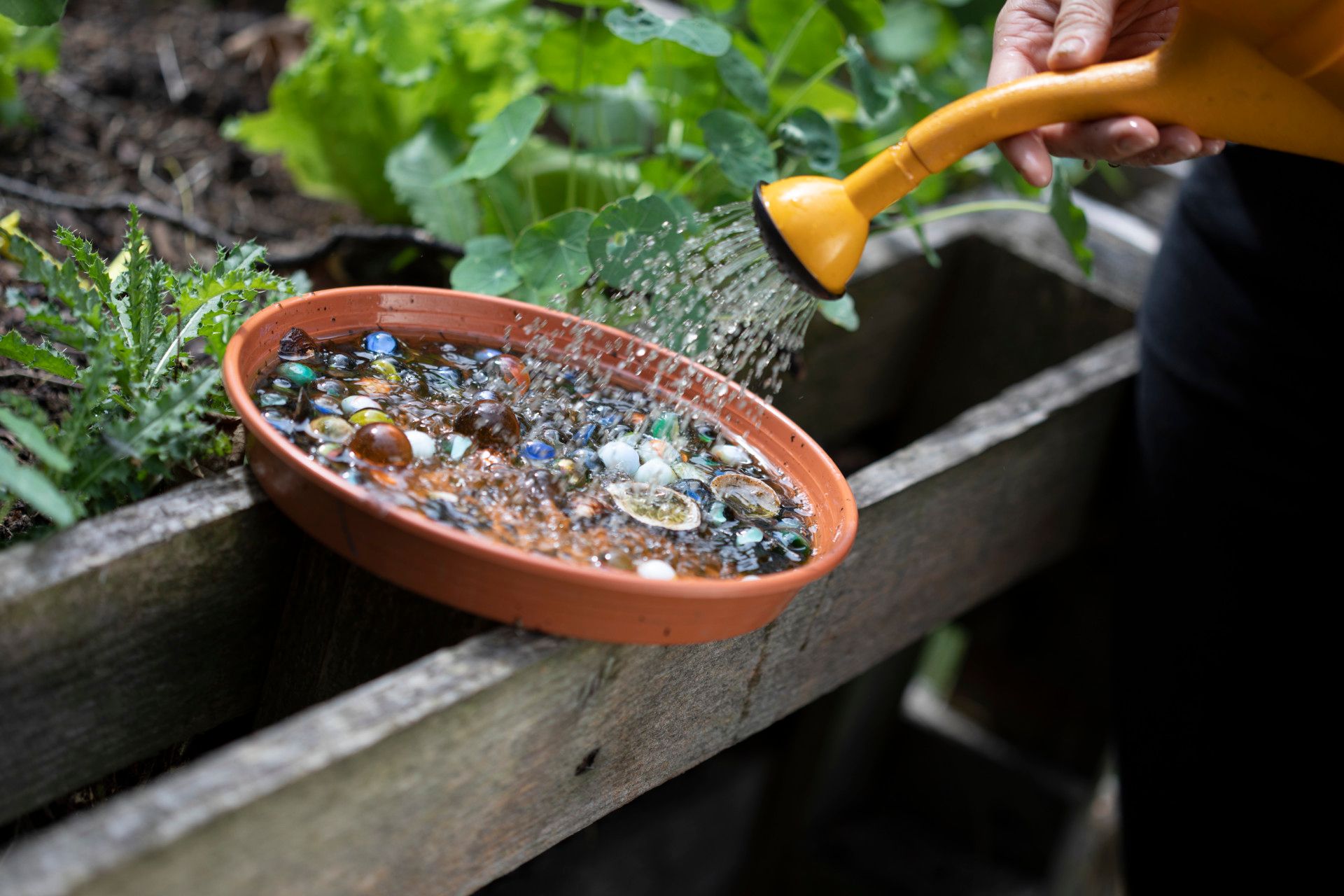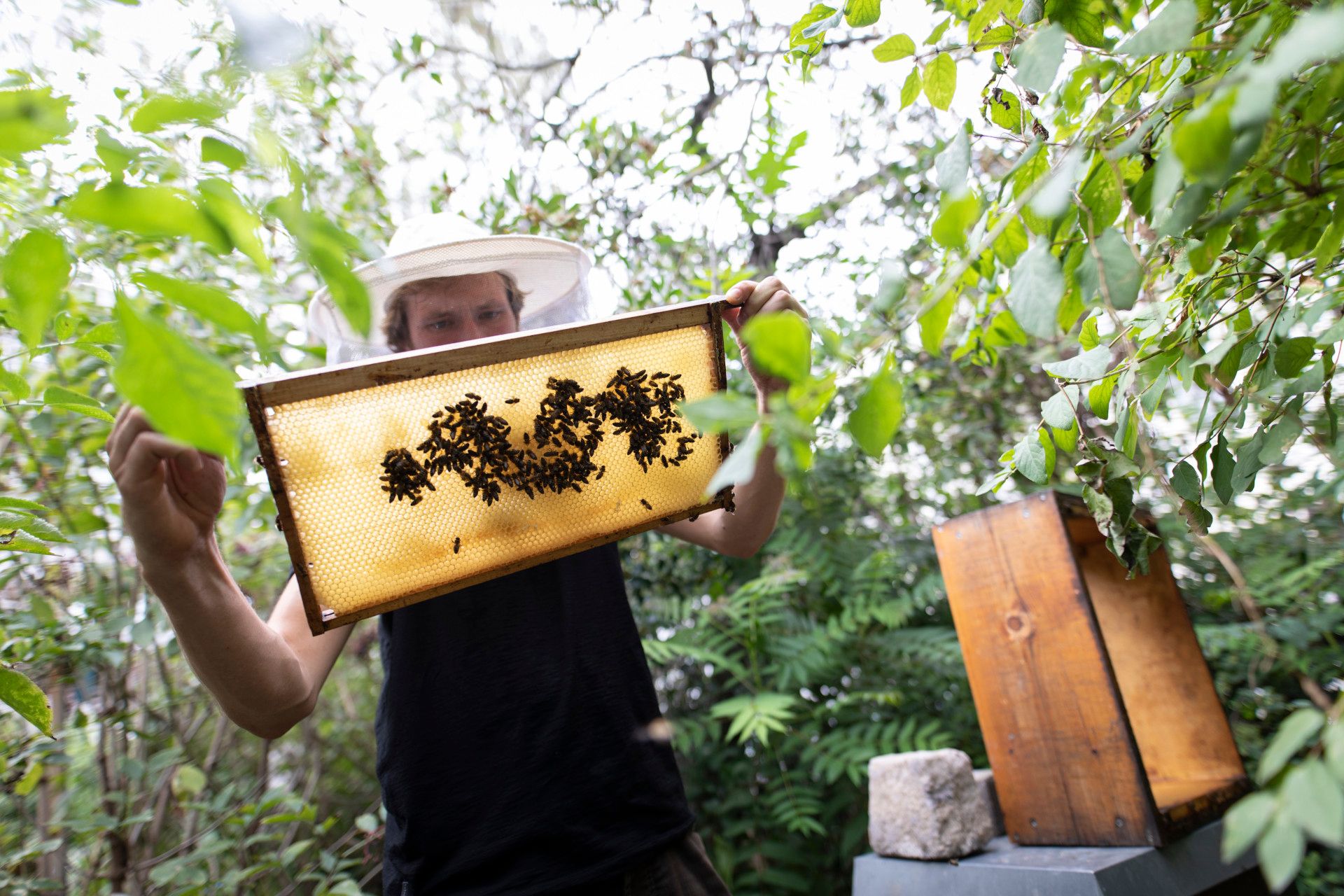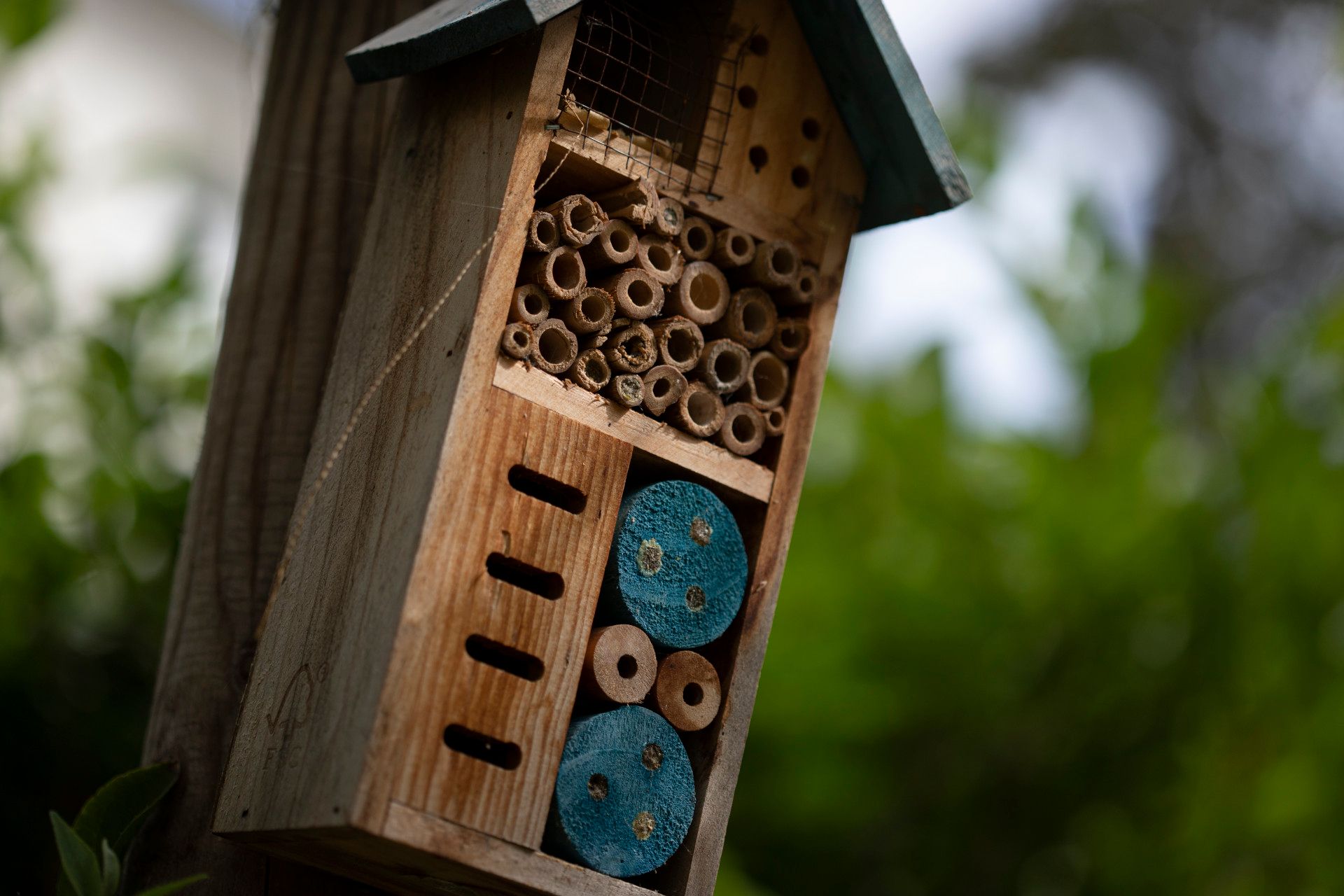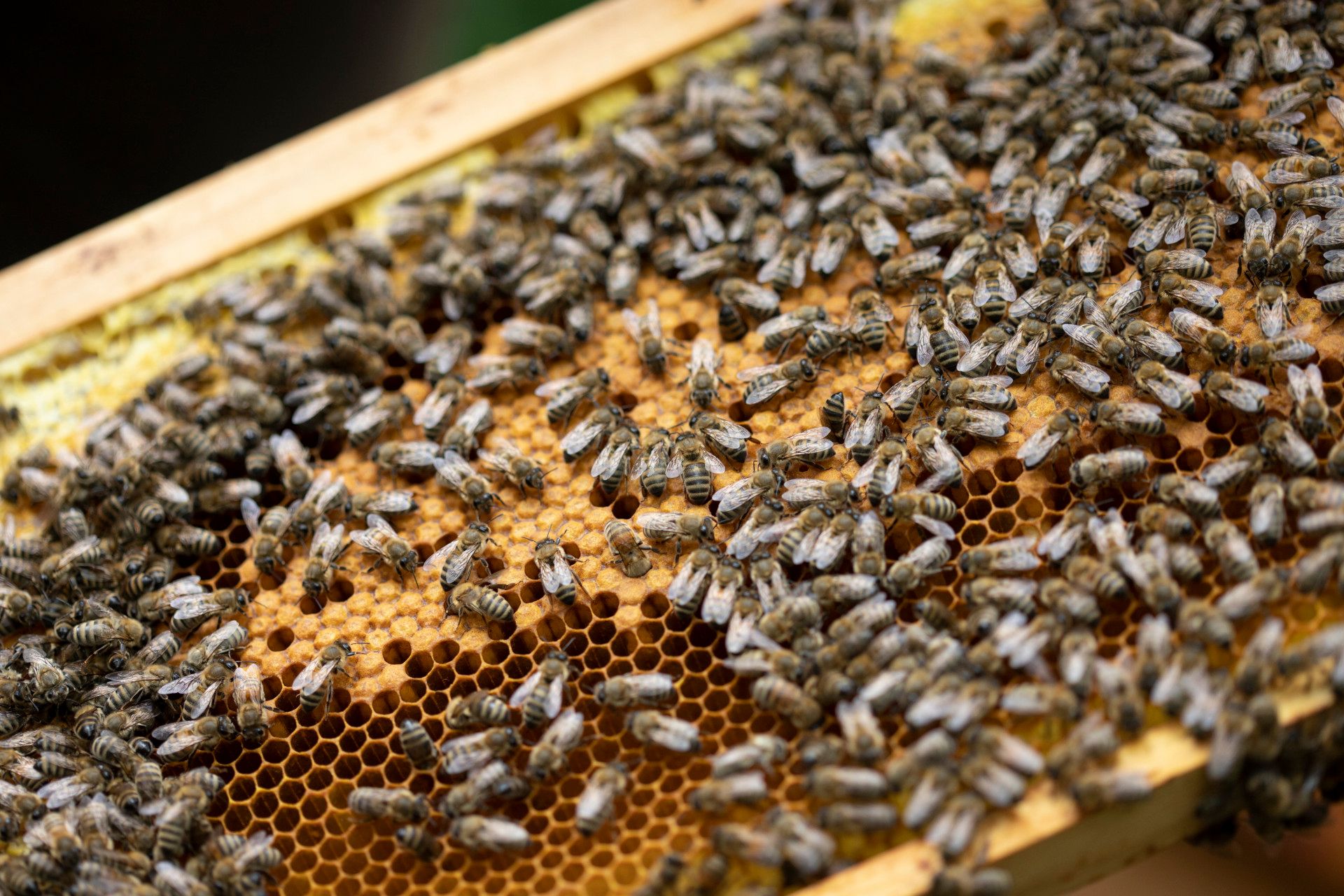Colourful chard is the trend this year. Closely followed by sweet potatoes. But there are also peppers and chillies, broccoli, kohlrabi and even corn growing in the 20 raised beds on the edge of Bonn city centre. Not forgetting tomatoes, the classic vegetable plant for home cultivation. Numerous varieties grow wildly in the StadtFrüchtchen garden. Most of the tomatoes are already beautifully red. Others still need a few days. "Anyone who joins us can help themselves here," says Imke Feist and invites us to try them. Mmmh!
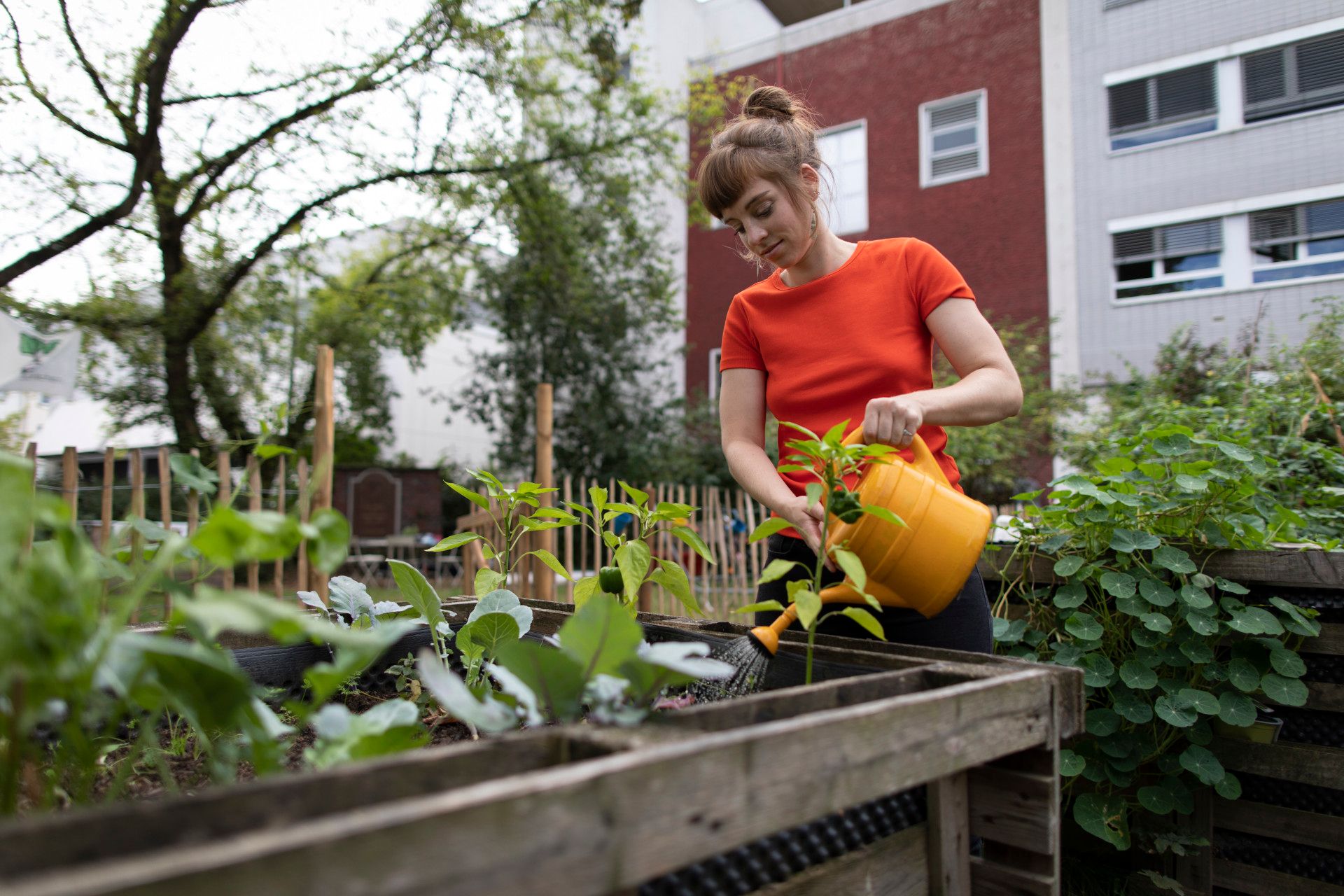
"Anyone who joins us can help themselves here"
Tourismus NRW e.V., Ralph Sondermann, Stadtgarten Stadtfrüchtchen, Bonn Tourismus NRW e.V., Ralph Sondermann, Schild Stadtgarten Stadtfrüchtchen, Bonn Tourismus NRW e.V., Ralph Sondermann, Gemüsebeete in Stadtgarten, Bonn Tourismus NRW e.V., Ralph Sondermann, Gießkanne und Gemüsebeete in Stadtgarten, Bonn
It is still pleasantly cool in the small idyll in the middle of the multi-storey apartment blocks between the banks of the Rhine and the Beethoven House. The garden is hidden between parked cars behind a dense hedge of bushes and trees. Someone has already been here and unlocked the small wooden gate. The table and chairs are set out. Large, colourfully patterned cushions lie in the two old bathtubs, which have been converted into reclining sofas.
"Each bedding party has to open the garden at least one week a year and water it for everyone," explains Imke Feist, initiator of the urban gardening project. These tasks are a prerequisite for taking part in the project. She rubs the damp soil between her fingers, something she will do several times during the interview without even realising it. "I'm an absolutely tactile person," she then says, "and I always wonder why I always have dirty hands when I come out of the garden. Even though I haven't done any gardening myself."
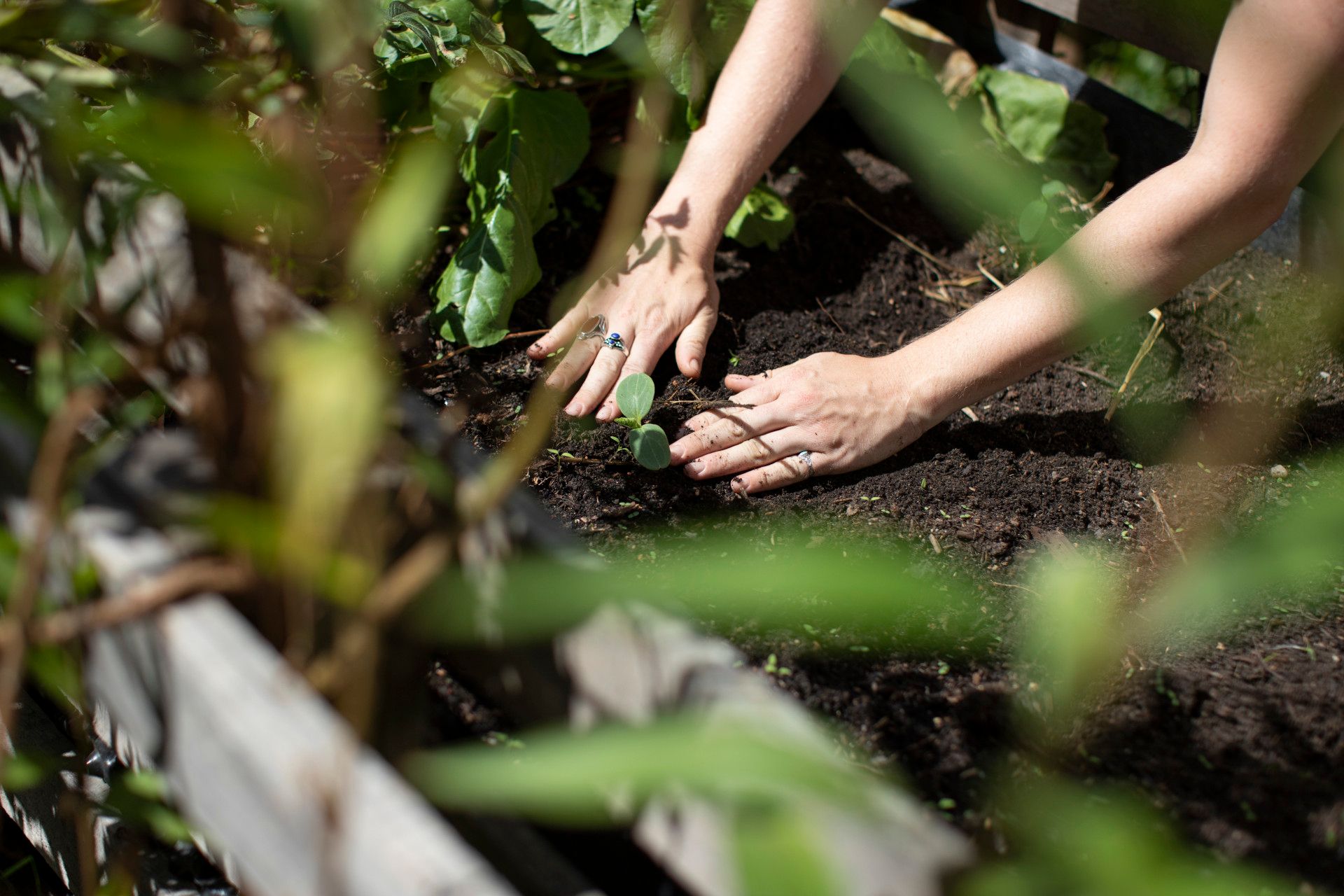
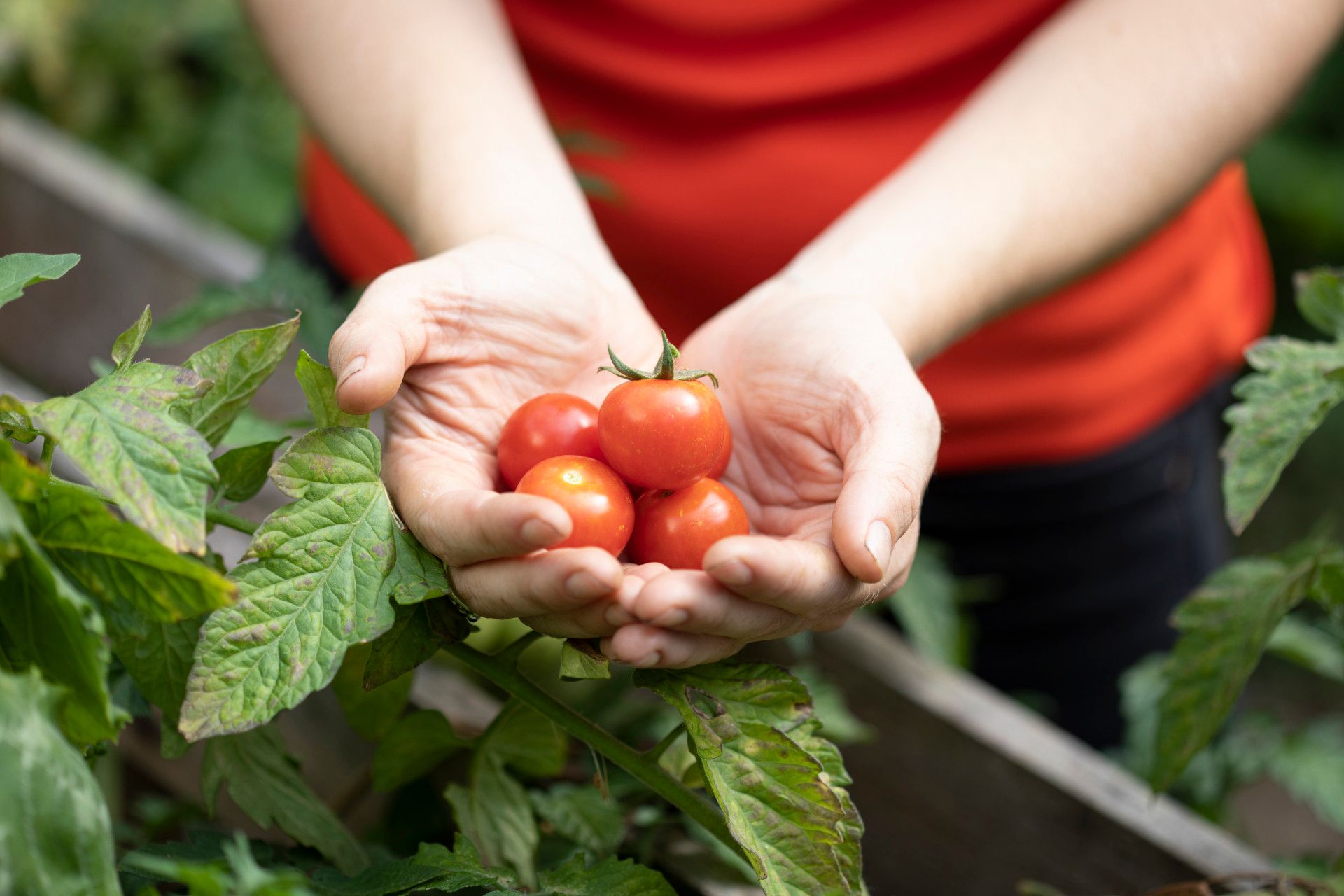
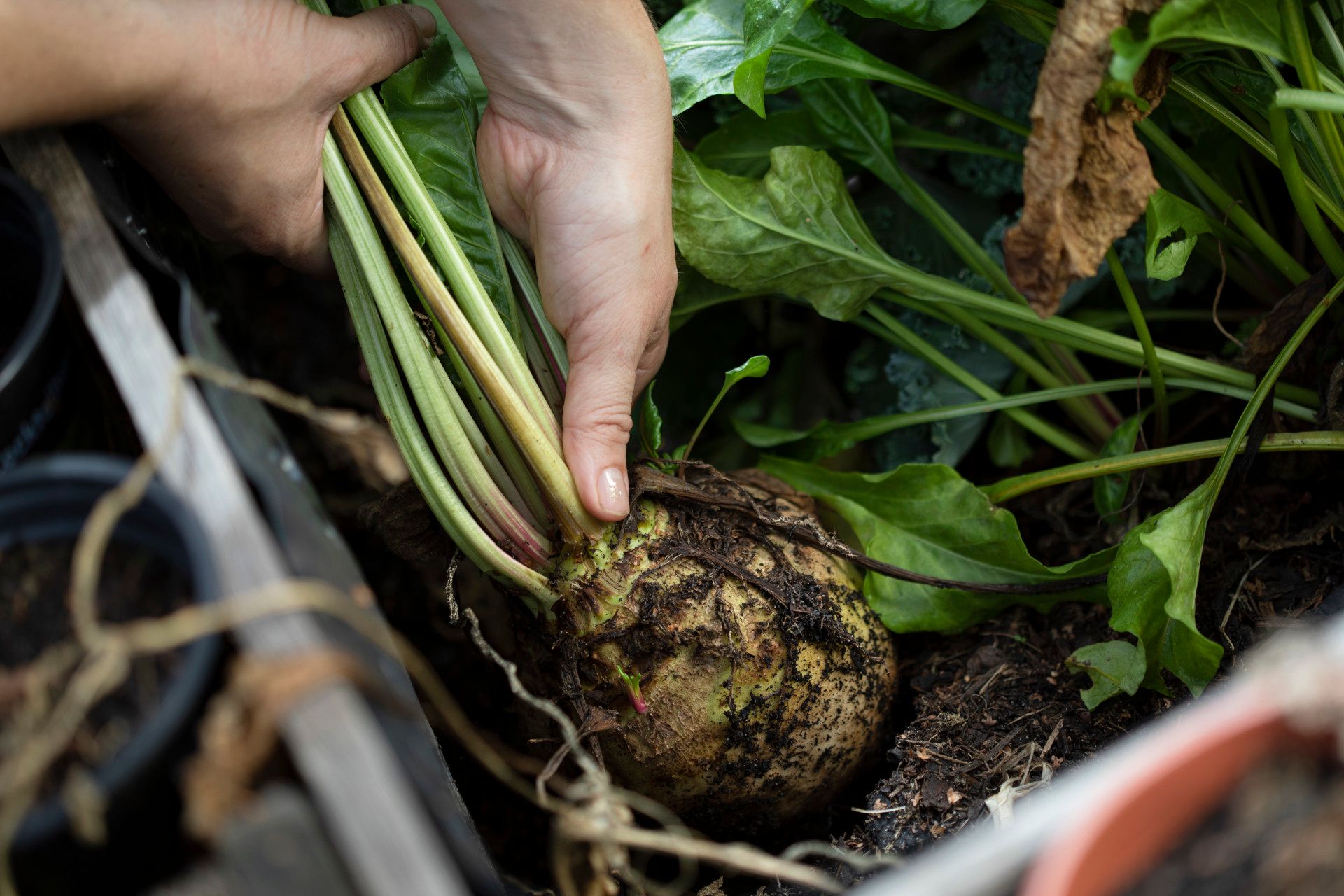
The 28-year-old now has no time for more than a few lettuce, pepper and chilli plants, which she grew this summer. She started the project three years ago together with a friend, without even knowing what it would become. She was still a student at the time. Today, she works full-time in the animal welfare sector and develops teaching materials for schools. But she still comes to the garden at least once a day. To see what's going on. But also to meet friends and acquaintances. The community garden has long since become something of a meeting place, and not just for local residents. Children have their own bed where they can plant whatever they want. Filling the beds in spring is always "a little party". And normally, all the parties involved in the beds meet once a month to discuss organisational matters. Some of them have been involved from the very beginning.
Sometimes, however, strangers sit on the ground and have a picnic in the garden or lie in the bathtub or hammock and read a book. They have also celebrated birthdays on the meadow in front of the vegetable beds, which are separated by a fence. "In any case, you immediately strike up a conversation in the garden," says Imke, who still can't quite believe what she started with StadtFrüchtchen Bonn back then.
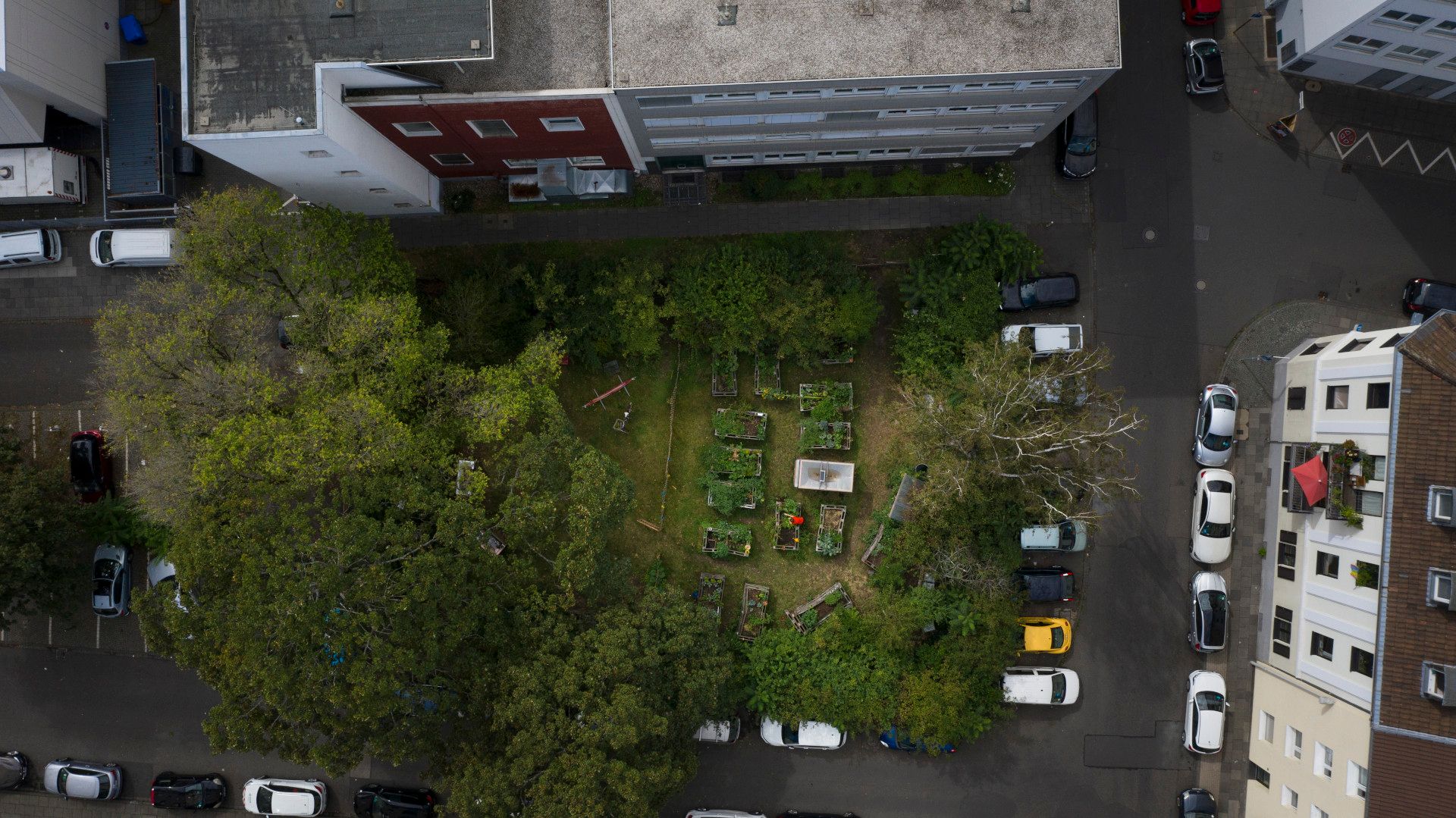
The word magical comes up several times. The likeable young woman would never have dreamed "that everyone would magically stick to what belongs in the compost and what doesn't". She thinks that's "super cool". Imke, who approaches people openly with her refreshing manner, must also admit that she had reservations at first. She asked herself "whether I could even organise a project like this and lead a community".
The former playground area, where a total of 20 raised beds are now cultivated mainly by families with children, was pretty neglected at the time. A dreary place with lots of concrete. "Typical 60s chic," says Imke with a wink. No children played here anymore. Instead, young people partied on the site in the evenings and left their rubbish behind. Imke is all the more pleased that today it's not just the gardeners who spend time here, but also curious visitors from the neighbourhood who stop by or employees from local companies who spend their lunch break in the garden.
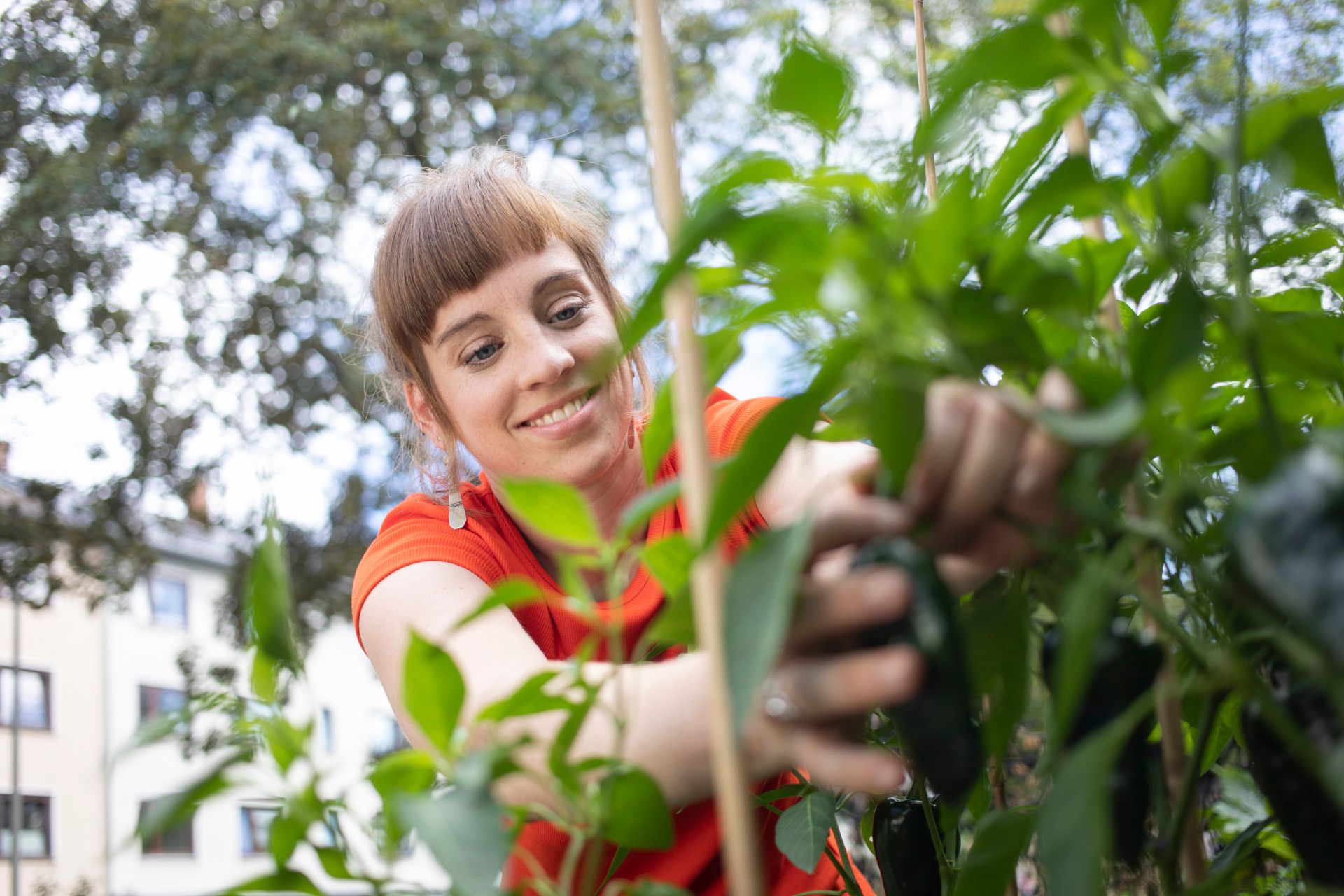
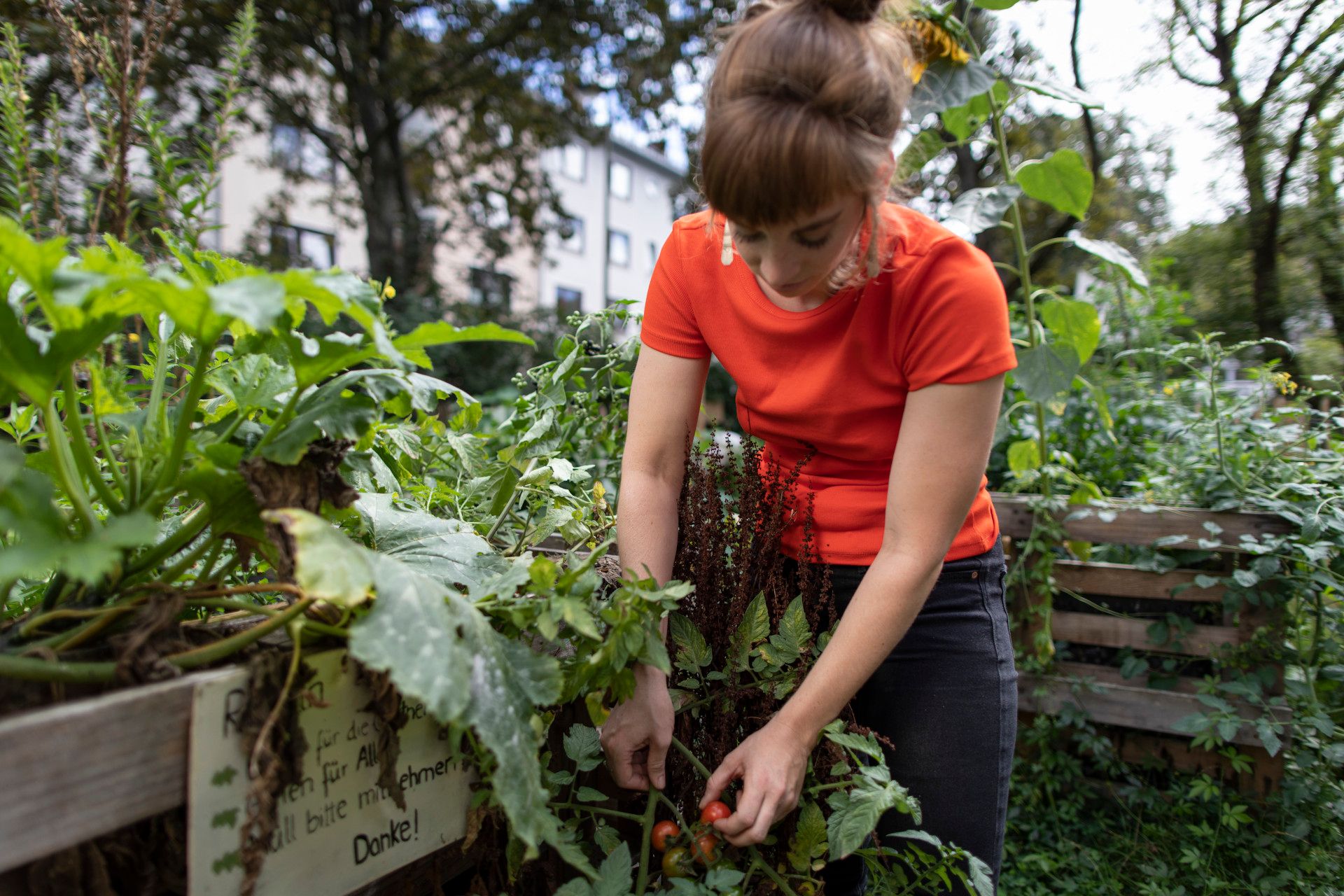
When the agricultural sciences student and her fellow student Miriam Brink first approached the city with their concept just over three years ago, it was actually about a place for educational work on biodiversity, sustainability and the entire natural cycle. A kind of garden with its own cultivation café. That was the original idea. However, the fact that the community garden has now turned out to be a size smaller does not bother the young woman at all. On the contrary. "We had an incredible number of supporters right from the start, and there was also huge interest from local residents." Imke recalls that all six raised beds were leased after the first neighbourhood festival. There are now 20 of these wooden constructions, in which everything grows that the local garden has to offer in terms of vegetables. There is also a herb bed for everyone and, somewhat hidden among the bushes and shrubs, three beehives.
"But it's not my ideas that make the garden beautiful. It's the ideas of others."
A beekeeper looks after the hives and visits regularly. Naturally, the children are particularly curious. But they don't need to be afraid. "The bees are super gentle. I don't know that any of us have ever been stung," says Imke, pointing to the small clay bowls with marbles and water. There are many of these bee troughs on the raised beds, which incidentally cost 30 euros a year to rent. The money goes into the community fund, which is used, among other things, to pay the rent for the 600 square metre site.
Imke was aware of the challenges posed by the garden right from the start. Nevertheless, she has gained a lot of experience in recent years and learnt a great deal about gardening and about herself. Not only that it takes a lot of patience to keep a project like StadtFrüchtchen going. Imke also had to learn that not everyone involved is always equally motivated. But she would never think of calling the little idyll her garden or even claiming it as her own. "I merely initiated the project," she says, once again rubbing soil between her fingers. "But what counts is the community." You could also say that the seed has sprouted.
City, country, riverThree questions for Imke Feist
Imke, you have 48 hours of free time. What would you definitely do with this time in NRW?
Imke: "If I had nothing planned at all? I don't think I'd go anywhere else, I'd just stay in Bonn and enjoy all the places I visit far too rarely. I could have a coffee in the old town again and go jogging along the Rhine towards Mehlem in the evening. That's so beautiful. And I would finally go to the Bundeskunsthalle again. I haven't been there for a long time."
Which place in NRW did YOU recently rediscover for yourself?
Imke: "When I was camping with some friends near Nideggen in the Eifel recently, we actually saw some beavers. We were all completely freaked out. Because at first we thought they were nutria. We know them from the banks of the Rhine here. But they really were beavers. Totally cool."
Your personal favourite place in NRW.
Imke: "My favourite place is where I come from. The Kottenforst in Brenig-Heimerzheim - it's in the Rhineland Nature Park, very close to Bonn. It's actually a normal forest where I used to play as a child. But I still like to go here today when I visit my parents. Then we go on an outing together or I go mushroom picking with my mum. Just like in the old days. And I always take a lot of positive energy with me from here and think: nature is just so beautiful!"
